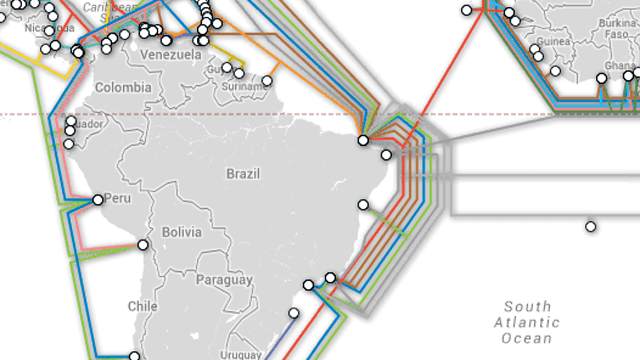Brazil is not very happy about all these NSA revelations. As home to Latin America’s biggest economy, the country understandably hates the idea that the United States is listening to its phone calls and reading its emails. In fact, Brazil hates it so much that it wants to disconnect itself from the US internet altogether.
This will not a simple task, but there is a real plan in place. And to be frank, it’s a pretty aggressive move in the direction of the government taking control of how the internet works. President Dilma Rousseff seems bullish about it though, and has ordered several specific — and potentially impossible — measures to break away from the US internet:
- Force Internet companies like Google and Facebook to build servers inside Brazil’s borders so that they would be subject to Brazilian privacy laws.
- Build more internet exchange points in order to route Brazilian traffic around potential spyware.
- Launch a state-run email service through the postal service to act as an alternative to Gmail, Yahoo Mail and others.
- Laying a new underwater cable to Europe so that Brazil can connect with those countries directly
Rousseff has also demanded a detailed report of the extent of American intelligence gathering in Brazil.
While the move to create an independent internet seems extreme, the idea of pushing US authorities for more transparency is at the very least understandable. In July The Guardian’s Glenn Greenwald reported that Brazil is second only to the United States when it comes to the amount of communications subject to NSA surveillance. We don’t know specific numbers, but we do know that US spies are watching Brazil, an ally, as closely if not more closely than countries like China and Iran.
Why? Well, as former director of both the CIA and NSA, General Michael Hayden, explained to The New Yorker recently, “That’s where the transatlantic cables come ashore.” It’s true. If you look at a map of the undersea cables, you can clearly see how Brazil is one of the most important telecommunications hubs in the world. This fact also further complicates Brazil’s plan to disconnect itself from the U.S. internet, a move that lawmakers aren’t even sure is possible.
Difficult as it may be, Rousseff isn’t backing away from her plan to make Brazil’s internet more independent. She’s expected to speak about it more later this month when she address the United Nations General Assembly. Meanwhile, critics warn that Brazil’s government intervening in the basic operations of the internet will set a dangerous precedent. It might not even help keep spies away. As one cybersecurity expert told the Associated Press, “It’s sort of like a Soviet socialism of computing.” And we all know how that’s been working out for Russia. [AP]
Update: In a culmination of disapproval over America’s spying on her people, Rousseff cancelled a planned trip to Washington on Tuesday. Obama tried to talk her out of cancelling on Monday night. He also failed to make a public apology for the spying like she’d asked.
Top picture: Submarine Cable Map
